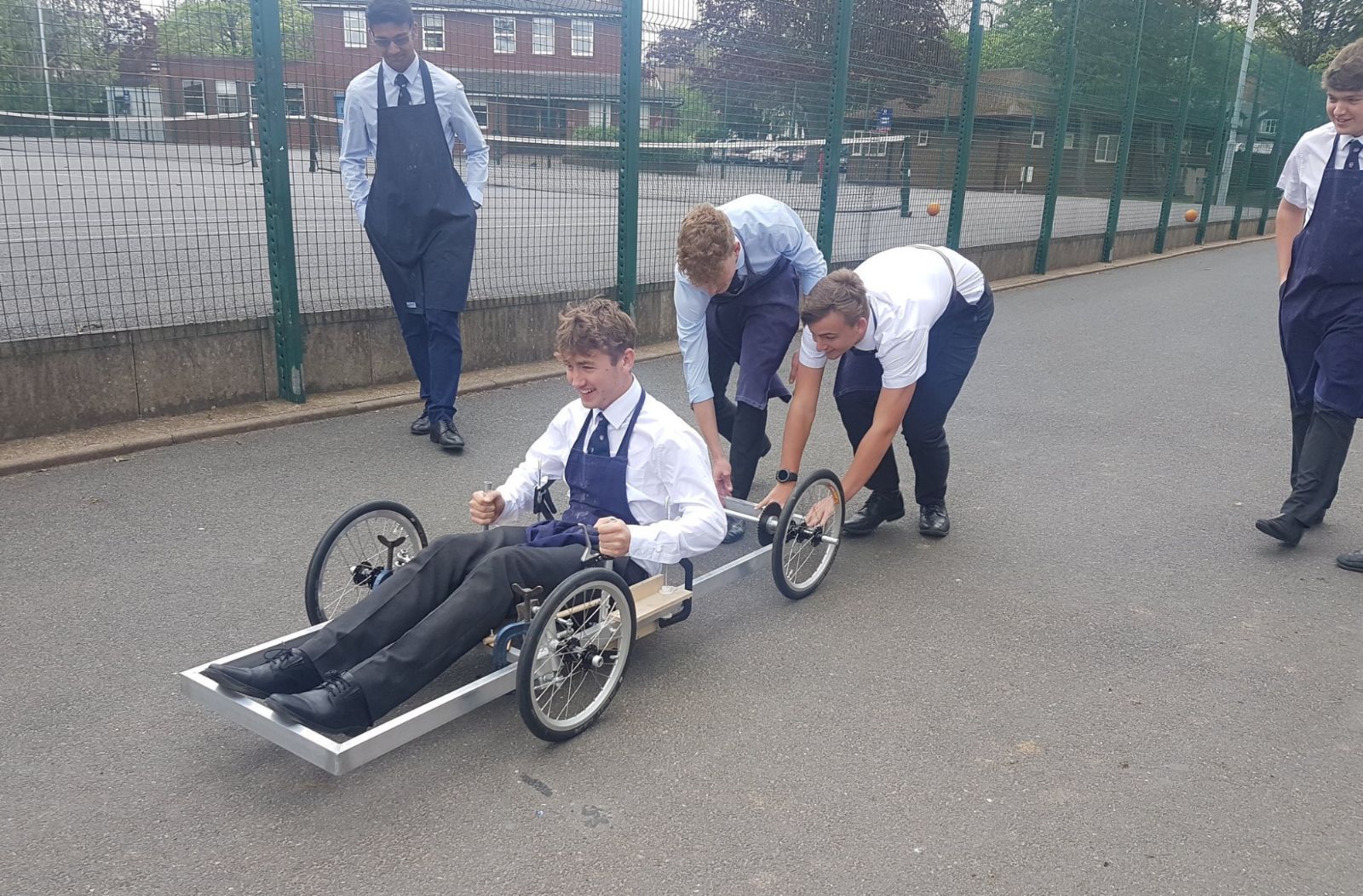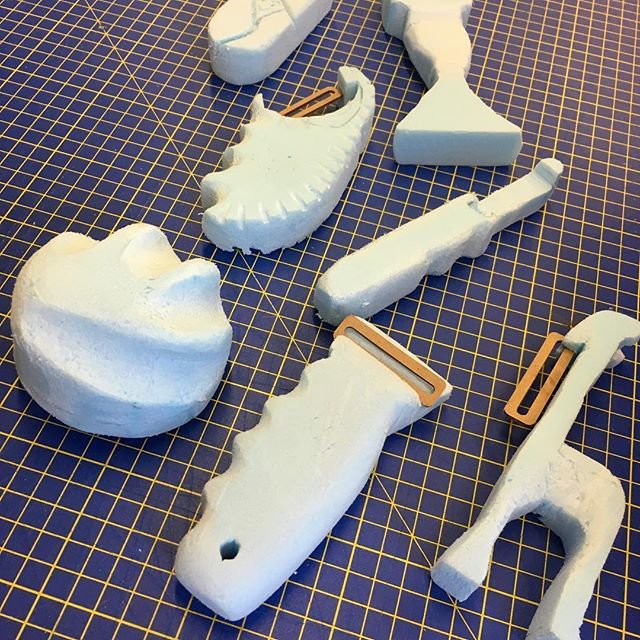Design Technology
Staff
Our Head of Design Technology is Mr N E Corbett

The Design Technology department teaches a wide range of topics to promote creativity and experimentation and responsible design. Pupils are encouraged to solve problems, take risks and develop an appreciation for a wide range of materials and processes, including woods, metals and plastics, electronics, food and textiles. As pupils progress they have the opportunity to undertake more independent and increasingly ambitious projects.
Facilities
The department teaches in a suite of workshops and teaching rooms in a dedicated building affectionately known as ‘The Fort’. Facilities include: well-equipped wood and metal workshops, two ICT suites, a food suite along with textiles and computer aided design and manufacture equipment (laser cutter, 3D router, 3D printer and plotter/cutters). We use a wide range of software including commercial design packages such as SolidWorks.
Pupils also enjoy excellent support from our skilled departmental technician.
Curriculum
Lower School
We follow a curriculum of our own devising which focuses on developing the key skills that lead to quality and imagination in design. Third Form (Year 7) pupils are taught the following: woodwork, metalwork and technical textiles. In the Shell Form (Year 8) pupils are taught structures, electronics and product design. In the Fourth Form (Year 9) pupils prepare for GCSE by completing a 16-week design and make project focused on lighting products.
GCSE
GCSE pupils follow the Design Technology AQA specification. Pupils start by investigating key issues in design to Build up a detailed understanding of emerging technology, materials and processes as well as key issues such as sustainability and commercial production techniques. They also undertake a series of focus projects covering graphical, modelling and manufacture skills. In the summer term of the first year, through to March of the following year they engage in their own design and make to develop a unique design solution and supporting e-portfolio.
Sixth Form
In the Lower Sixth we follow the AQA A Level syllabus for Design Technology: Product Design.
Design Technology emphasises two key factors — creativity and sustainability. The course explores ideas of originality and value, to question and challenge, to envisage what could be. This course develops a range of practical, design and analytical skills in the first year alongside creativity and understanding of materials and processes. In the second year students complete a design and make project.
All modern designers have to consider sustainable issues when designing new products. Students learn how to develop solutions that conserve the use of natural resources and minimise the pollution from manufacturing or disposal of waste.
As an A Level, it is increasingly sought after by universities in combination with science or arts subjects. Many students of this subject go on to study related areas at university and eventually work in fields such as engineering, product design and architecture.
Click here to Learn more about Design Technology in the Sixth Form
Co-curricular Activities
Stretch & Challenge
The majority of our pupils gain a 7 to 9 at GCSE and a Grade A* to B at A Level. At all levels, pupils are encouraged to solve demanding problems, develop their own interest and understanding through independent research and experiment with a combination of traditional craft skills and the latest high-tech processes such as rapid prototyping. At GCSE pupils are encouraged to apply for the Arkwright Scholarship, and the department has had many successful applicants over the years. At A Level students are also invited to take part in the Triumph Design or TDI Challenge Awards.
Trips & Visits
Design & Technology undertake a number of trips at GCSE and A Level to local manufacturers to learn about processes such as casting and injection moulding or to visit companies such as Land Rover, Morgan Cars to gain an insight into the organisation of their production systems.
Destinations
Many of our pupils go on to study Engineering, Architecture or Product Design at leading universities.
fOLLOW US ON tWITTER @solschDT

